We had 31 sessions and 96 speakers at our GamesBeat Next event this week in San Francisco. We had 555 people come out for the day-and-half-long event. Thank you for doing that, as we had just 29 people signed up four weeks ago. I’m so happy we have such a supportive community.
I appreciated the wonderful feedback for the event and my opening speech. It’s so hard to not say something about each of the great talks, but I’ll focus on just three of the ones that took place on the first day. They stood out to me for their insights and emotion. I’ll be writing about more of the talks in the coming days, and I’ll be sprinkling in videos as we get them uploaded. I’ll have to watch videos of the ones I missed. And please fill out our survey if you attended the event.
And it was awesome to see that our Game Changers list of the top 25 startups went live on Nasdaq’s tower in Times Square. That was an amazing surprise to see GamesBeat, Lightspeed and all the startups on the Nasdaq big screen.
Amir Satvat and Ninel Gryuner Anderson


One of the new things we did this year, in light of all of the thousands of layoffs in gaming, was a session about finding jobs. For that, we tapped Ninel Gryuner Anderson, CEO of Devoted Studios and a podcaster about game jobs; and Amir Satvat, a business development director at Tencent who created a side gig.
Event
GamesBeat Next 2023
Join the GamesBeat community in San Francisco this October 23-24. You’ll hear from the brightest minds within the gaming industry on latest developments and their take on the future of gaming.
Satvat is a bit of a quant and he used his skills to scrape the web for game job postings and organized them into a Game Jobs Workbook on LinkedIn. Doing this for no financial reward, Satvat managed to become a Top Voice in Video Games on LinkedIn with a following of 53,000 members in the past year. By gathering timely job opening data and making it easy to access, he empowered people to find work more efficiently. This volunteer work helped more than 700 people land jobs in games, counterbalancing some of the estimated 7,000 job losses in the past year.
He also started services where game veterans critique someone’s resume and offer mentoring sessions to job seekers. There are around 170 people who are reviewing resumes.
Those are phenomenal results and Satvat humbly noted his gratitude to those who helped him grow.
With the Game Job Workbook, Satvat had to deal with a lack of standard job descriptions at company web sites and more. But he eventually dealt with that and created a web-crawling program that takes the listings at more than 1,000 game companies (with 700 job classifications) and organizes them into a single spreadsheet with about 20 job categories. Job seekers can browse through it and find the jobs they need. My daughter Danielle looked through it to find positions for 3D artists, as an example.
“I realized the only way to do that was basically to build it with tech from the bottom up,” Satvat said.
Now the process is as automated as Satvat can make it, and he can mine it for insights. Gryuner Anderson noted that recruiters can use these resources to find special candidates that are perfect for an opening.
And while they come for the listings, the job seekers have stayed for the community. Job seekers need emotional encouragement as they look for work, and that’s what they find in Satvat’s LinkedIn community.
His advice? Most of the people who create LinkedIn profiles list nothing more than their identifying information and their previous jobs. They do nothing to sell themselves, as if they don’t realize that LinkedIn is a great (mostly free) classified ad service for people looking to hire folks. You can also turn on tags and make yourself more discoverable.
Also, instead of listing what you did in a job, you can write an impact statement about the results that you got in your job. You have to sell yourself on your LinkedIn profile itself.

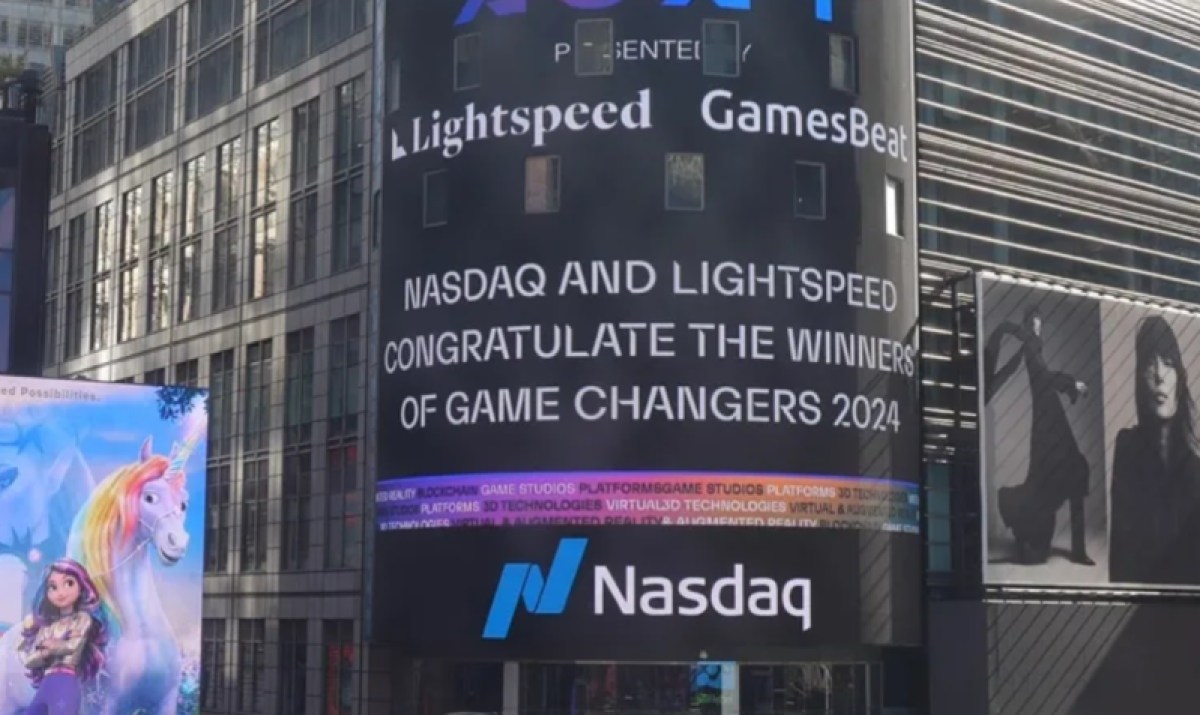
“If you’re on LinkedIn, I think you should be aggressive and be using the service for everything that’s there. That starts with not having what I call like a ‘zombie profile,’” Satvat said. “You should have an intelligent banner, and you should have a smart ‘about me’ section. But to really go beyond that, I think that you should really have a presence where you contribute, and you’re active on the platform.”
He also noted that if you know someone on a team, your chances of success probably increase by 10 times. That’s a reason to be active in a community and participate in an authentic way.
Satvat got a bit emotional when he noted hundreds of people came up to him at Gamescom in Germany — the first games event he ever attended — and thanked him for what he was doing to help people find game jobs.
“People came up to me and gave me a hug. Some of them were crying. Some of them said that a family member or friend had found opportunities through the resources in our community,” he said. “And the point I want to make is we’ve spent just now a lot of worthwhile time talking about resources. But resources are kind of sterile things. They’re really representative of communities and environments that we create. And I think the thing that I realized, and I think this is the biggest secret to people who have had success with our community, is that they feel like they’re part of a positive and supportive community. They become part of it and they contribute to it themselves.”
He added, “There is a symbiotic relationship. You are putting yourself out there and increasing your discoverability. But if you do it in a positive way, you’re increasing the quality of dialogue in that community.”
Philip Rosedale
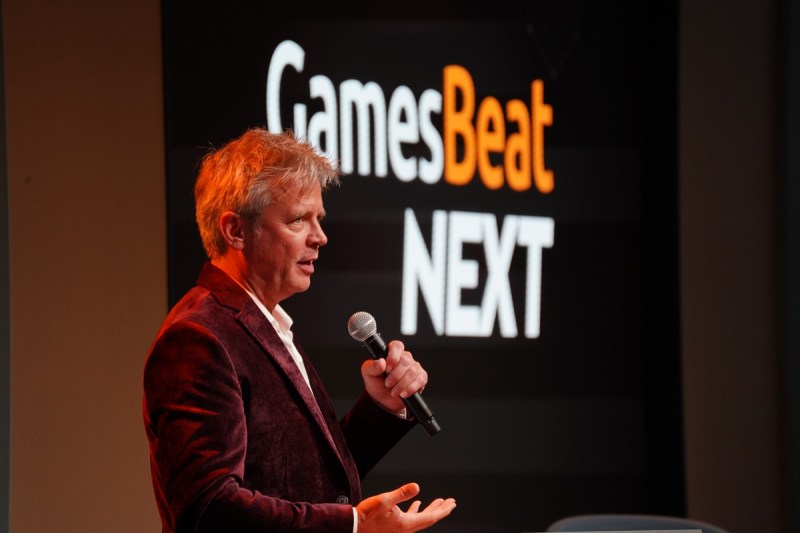
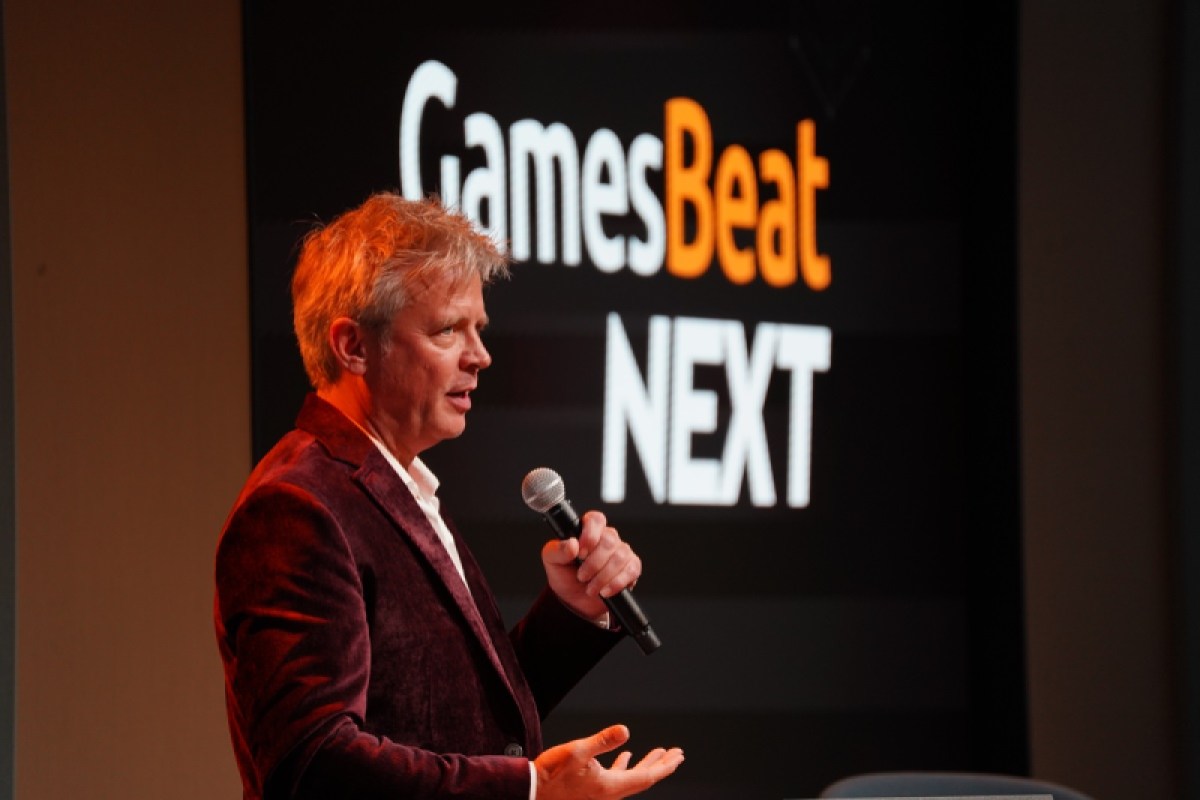
Philip Rosedale, a senior adviser to Second Life maker Linden Lab, gave a solo talk with a provocative question as its title: Is the metaverse dead?
He didn’t think so, and you would expect that for some who, two decades ago, created one of the most popular virtual worlds that is still alive as a kind of metaverse today.
But he acknowledged there is a lot of skepticism. After Mark Zuckerberg changed Facebook’s name to Meta and embraced the metaverse, the hype went into the stratosphere. But now it has died down again as companies and brands think more practically about how a metaverse concept can help them in the midst of a withering downturn. Where do we go after this hype rollercoaster has passed its peak?
Rosedale said there is always some kind of hype attached to ideas that can disrupt or change our existence as human beings — like electricity, atomic energy, the information superhighway and now the metaverse and AI. He noted that a lot of people think Second Life is dead, but he noted it is bigger than it has ever been, with a virtual economy that has generated billions over the years as people buy and sell digital goods to each other inside the virtual world. It has a million people who are very active.
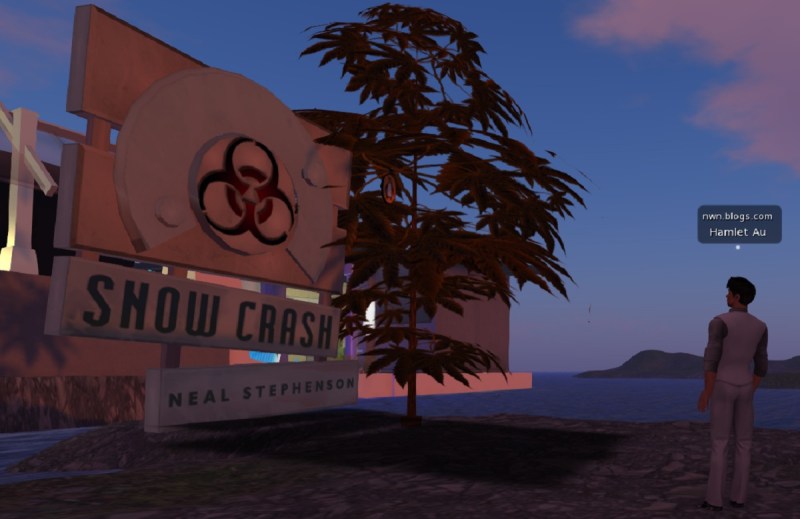
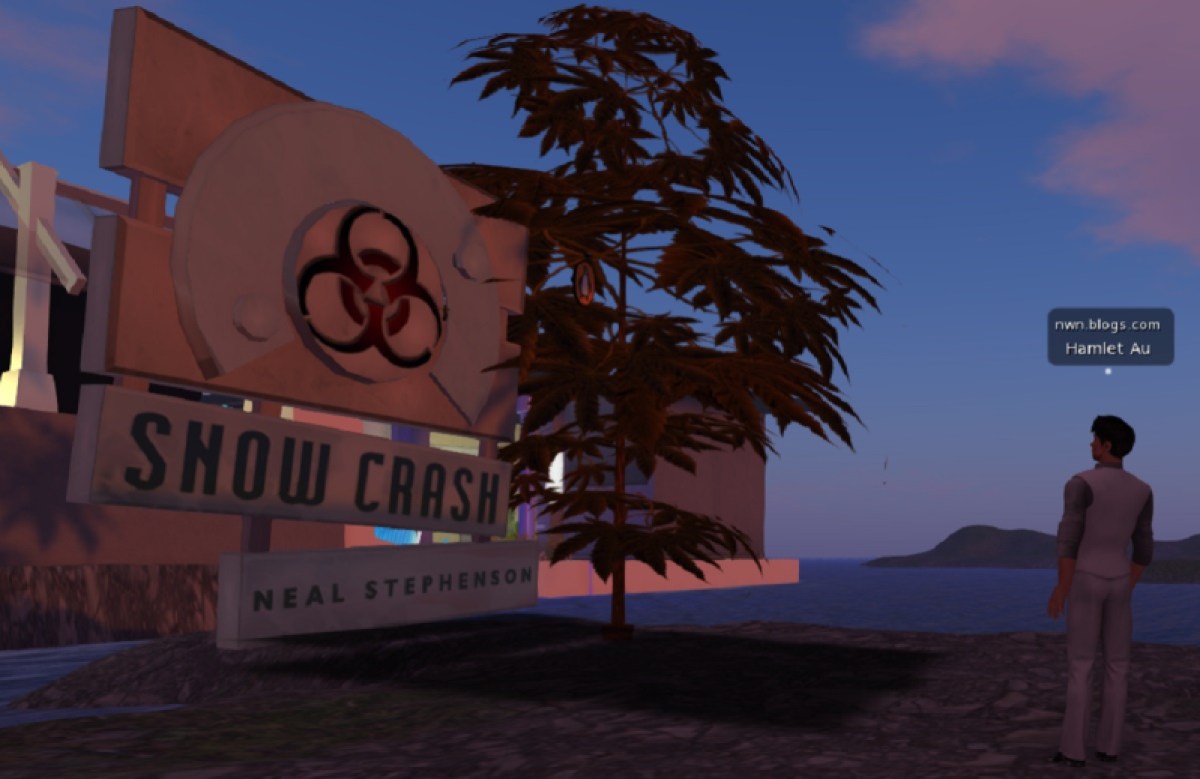
As the idea gained traction, Rosedale himself wondered whether humanity should go down the path of the metaverse, as there are both pros and cons. He noted that when you see yourself in third person as an avatar, sitting in the same virtual room on a couch with somebody else’s avatar, he said, “There’s an immediate sense of collaboration of connection and easy ability to become comfortable with them.”
He added, “This is because as animals we just work that way. We’re wired to feel that when we’re in the same room with somebody else, we’re closer to them.”
And virtual worlds can put us in the same room, in contrast to something like Zoom, which he said is like looking through a prison window at someone else in a different room. That creates a sense of disconnection. He noted that if you are about an arm’s length away from someone else, you treat them better because if you piss them off, it could go badly for you.
“Another wonderful thing about virtual spaces that we can be together for real in them,” he said. “That’s almost the opposite of social media.”
He noted a paper by Nick Yee at Stanford University about The Proteus Effect. It noted that if you have a three dimensional representation of yourself that you’re able to change as you wish, that representation does not have to be exactly you. It’s often more like who you wish to be.
“Slowly, over time, the person’s real identity and their real persona and their real body, in some cases, changes to track the avatar,” he said.
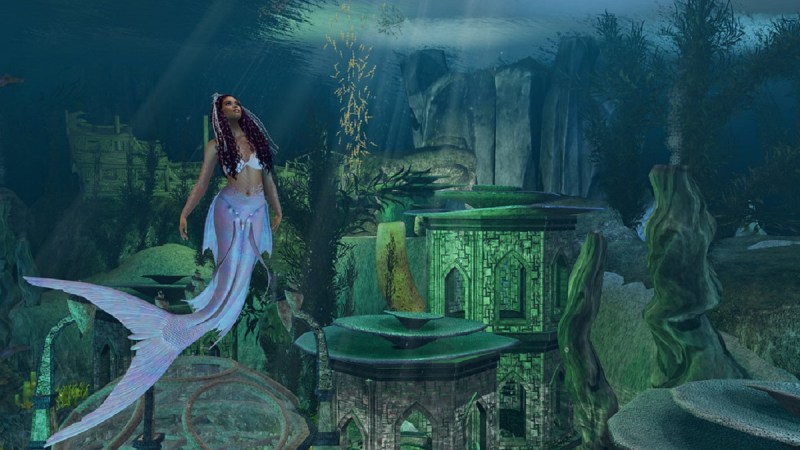
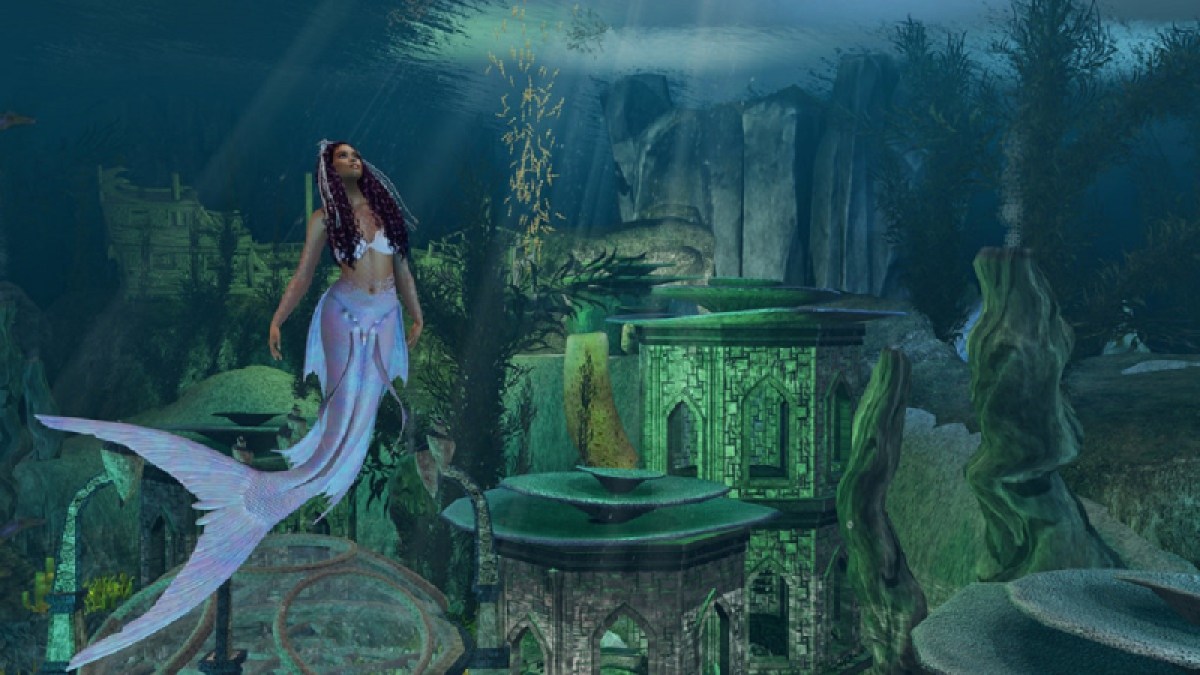
These are all positive reasons to keep working on the metaverse. In comparison to games, Rosedale believes that the metaverse is driven by social interaction between real people. That’s not always the case for games, which can be multiplayer or single player. Rosedale brought up this point to note that there is a difference between games and the metaverse idea.
So why hasn’t Second Life gotten bigger? Why don’t we have the metaverse yet? Rosedale thinks that virtual reality headsets still do not work the way they should. When we put one on, we don’t feel safe, as we’re blindfolded in a room which may have other people in it. Rosedale calls that a “great tragedy.” Those who will put on such devices are likely to be a homogenous and singular sort of person.
“That’s incredibly hard to fix,” he said.
Without things like video passthrough, (which we are now finally getting with the “mixed reality” on the Meta Quest 3) or perfect fidelity that helps ou avoid nausea, VR headsets only work for a small part of the population, he said. He thinks they’re too heavy still, and need to weigh less than 250 grams so they don’t push down on your nose.
“I think we’re still 10 years out from the being effective,” he said.
He also thinks face-to-face communication with avatars is nowhere near where we want it to be in capturing non-verbal communication. He also noted that there are risks of making you too vulnerable to ads inside virtual worlds, as the instruments for tracking you are much better than with other media. You can also create profound risks for yourself by creating virtual girlfriends and boyfriends who aren’t real people, he said.
“We cannot create a world in which we leave each other behind to enter into game worlds or to metaverses,” he said.
Content moderation is necessary because we’ve come from a history of mostly trying to control people from doing mean things to each other, Rosedale said. In the real world, you have things that will inhibit you from getting into trouble, like a parent or a bartender or a landowner. That’s bottom-up moderation, and it doesn’t really exist in the metaverse, where you can be uninhibited in a bad way.
In a closing thought, he said, “I’ve thought a lot over time about whether the metaverse is actually our place at all. I think a fascinating question to ask ourselves right now is maybe the metaverse that we really come to know in the future is one largely populated by the AIs. What if the metaverse were essentially the kind of safe place for both of us and for machines to grow up together?”
Jenova Chen
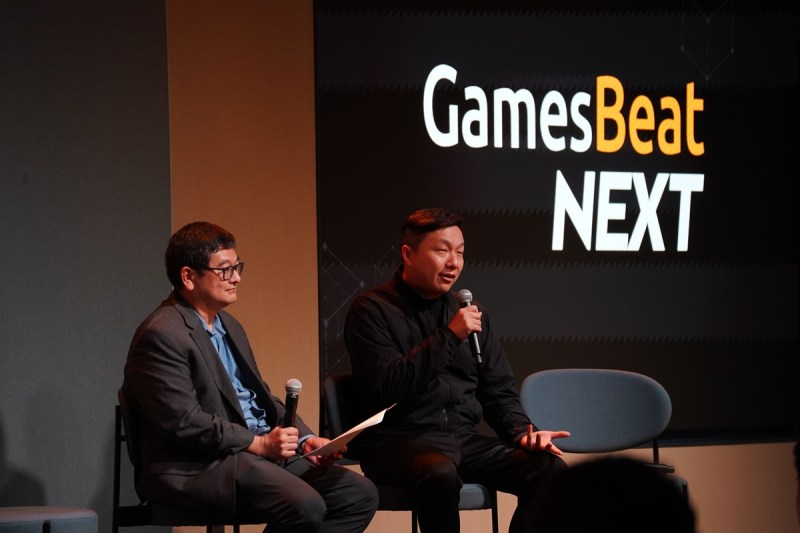
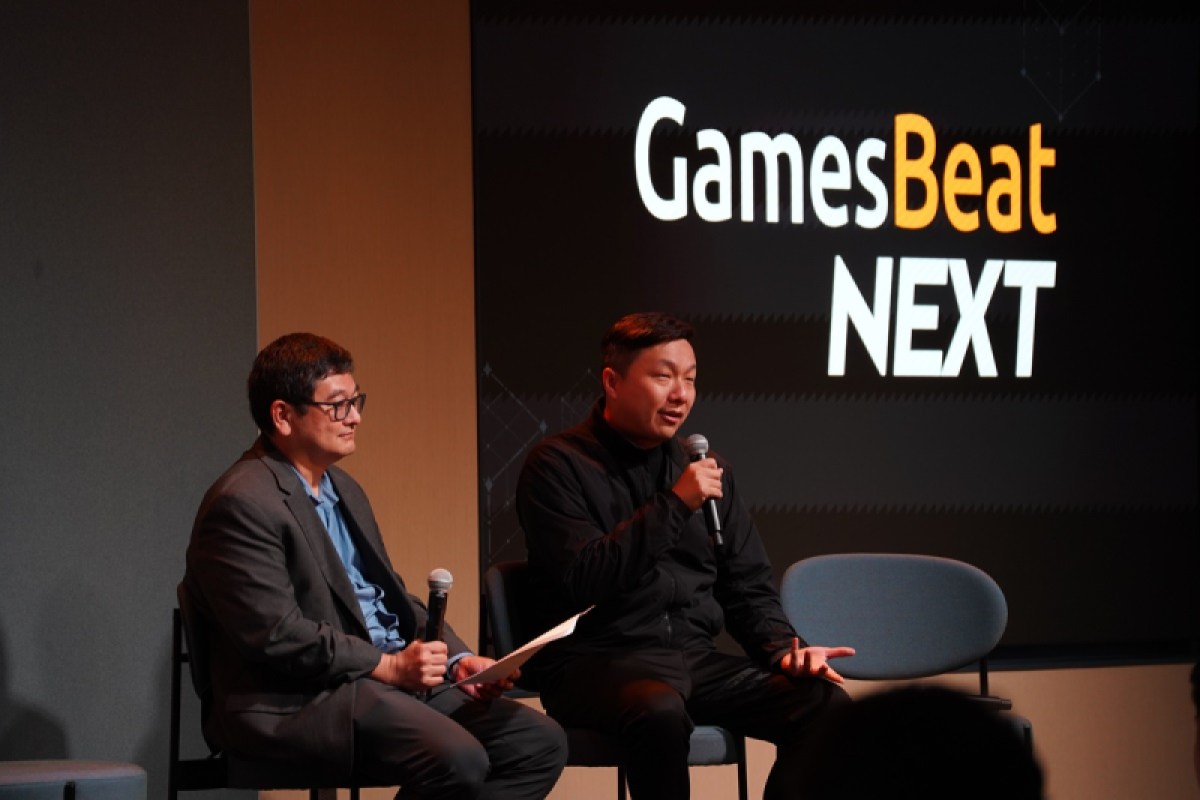
I had a chance to interview Jenova Chen, CEO of Thatgamecompany, about his focus on emotional games and friendly gaming communities, as created in his titles like Flow, Flower, Journey and Sky: Children of the Light. The earlier games debuted on the PlayStation while Sky became a huge hit on mobile devices.
And now it has started giving new experiences to the Sky community, like using new technology to bring thousands of players together at the same time in a share emotional experience like a music concert.
“Our hope, ever since we started the studio, is to make games that help to earn respect from the society that games can be a positive force — games can be a form of art — games can do things that make your life better. And to this day, we’re still working on it,” he said.
I noted my children grew up playing games like Flower and Journey, experiencing them together and spectating another’s play. And it was interesting to me that emotion is what Chen has cared about across all of the games.
He noted games in 2006 were much smaller as an industry and Congress was still looking at them as a toxic waste of time that made kids violent. Chen played games that weren’t violent, that helped him build friendships or study physics and history. Games became his career and he tried to understand why others hated video games, especially those who don’t play them.
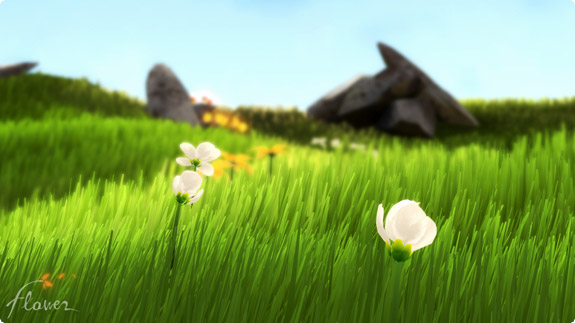
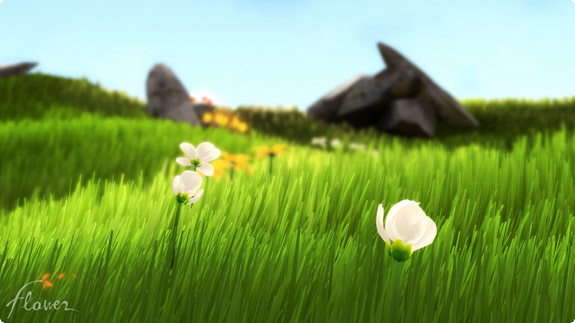
“If they actually play video games, they are usually somewhat open to that games could be an art form,” he said. “So why do people not play games? We talk about accessibility.”
Controllers should be accessible, but Chen said he rarely hears others talking about making a game emotionally accessible. He noted TV, movies and music all have emotional genres, like horror filsm or romantic films. There are things for so many types of people who have different emotional needs. If you are bored, you need something that excites you like a rollercoaster or action film. If you’re sad, you need something that cheers you up.
Games didn’t have that range. So Chen had to think about that. One reason that he made the shift away from PlayStation to mobile devices with Sky was that there were a lot more women playing mobile games. With a limited audience of mostly men on PlayStation, the audience was limited and, as a result, Thatgamecompany ran out of money even after it published the hit game Journey, which was a kind of art house film combined with a classic adventure. Teens panned it as a “walking simulator.”
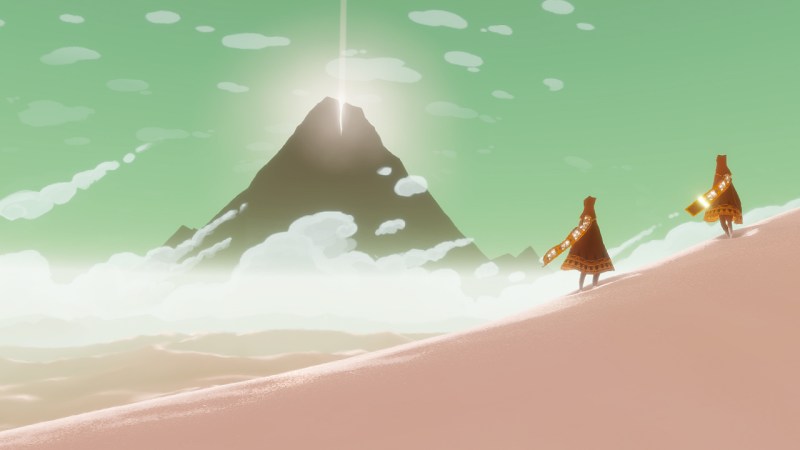

“We want to touch people’s emotions with dramatic stories that through gameplay,” he said. “We want to make them feel a joyful tear or sadness.”
With Sky, the company wanted to make a game that appealed not only to 35-plus men and women, but also teenagers — making it accessible to parents and chilren, men and women. And when the emotional game Sky came out, it got 260 million downloads over the past four years.
Lately, Chen has added something new with music concerts inside Sky. That was an unexpected direction, as Chen didn’t foresee that more than a million people would play Sky at the same time. Servers had to be upgraded over a couple of years to handle the concurrency.
At that point, with a million concurrent players, it no longer made sense to fit just eight people maximum in a virtual room. So the team thought about bringing together thousands of players in an interactive event — and that led to the concerts. Recently, the team was able to get 10,000 people in a concert. That concert has now been viewed more than 1.6 million times. Chen noted he has only been to three concerts, and one of them was a Taylor Swift concert. He was impressed with the shared sense of excitement, and he wanted to capture that in the virtual concert.
“There wasn’t a plan to build the metaverse. There wasn’t a plan to just go and do concerts. It was some kind of shared emotion that we wanted the community to reach,” he said. “We have 23 million monthly active users. That’s bigger than many countries. And the players have very strong opinions about how they want this society to evolve, like how they want to change the rule of law.”
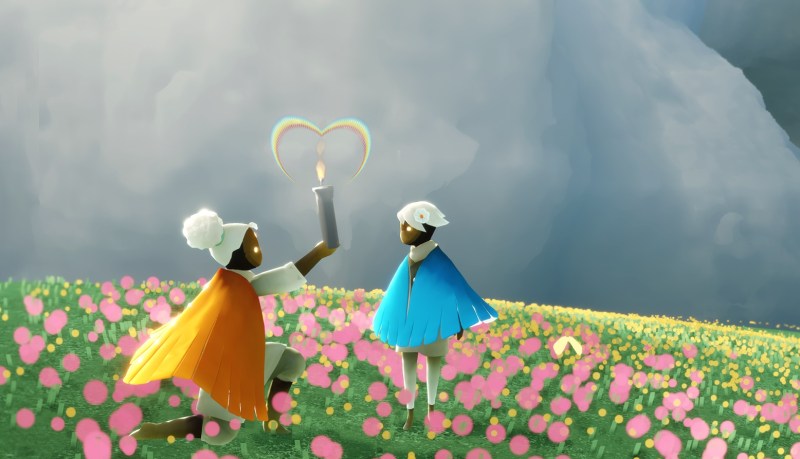
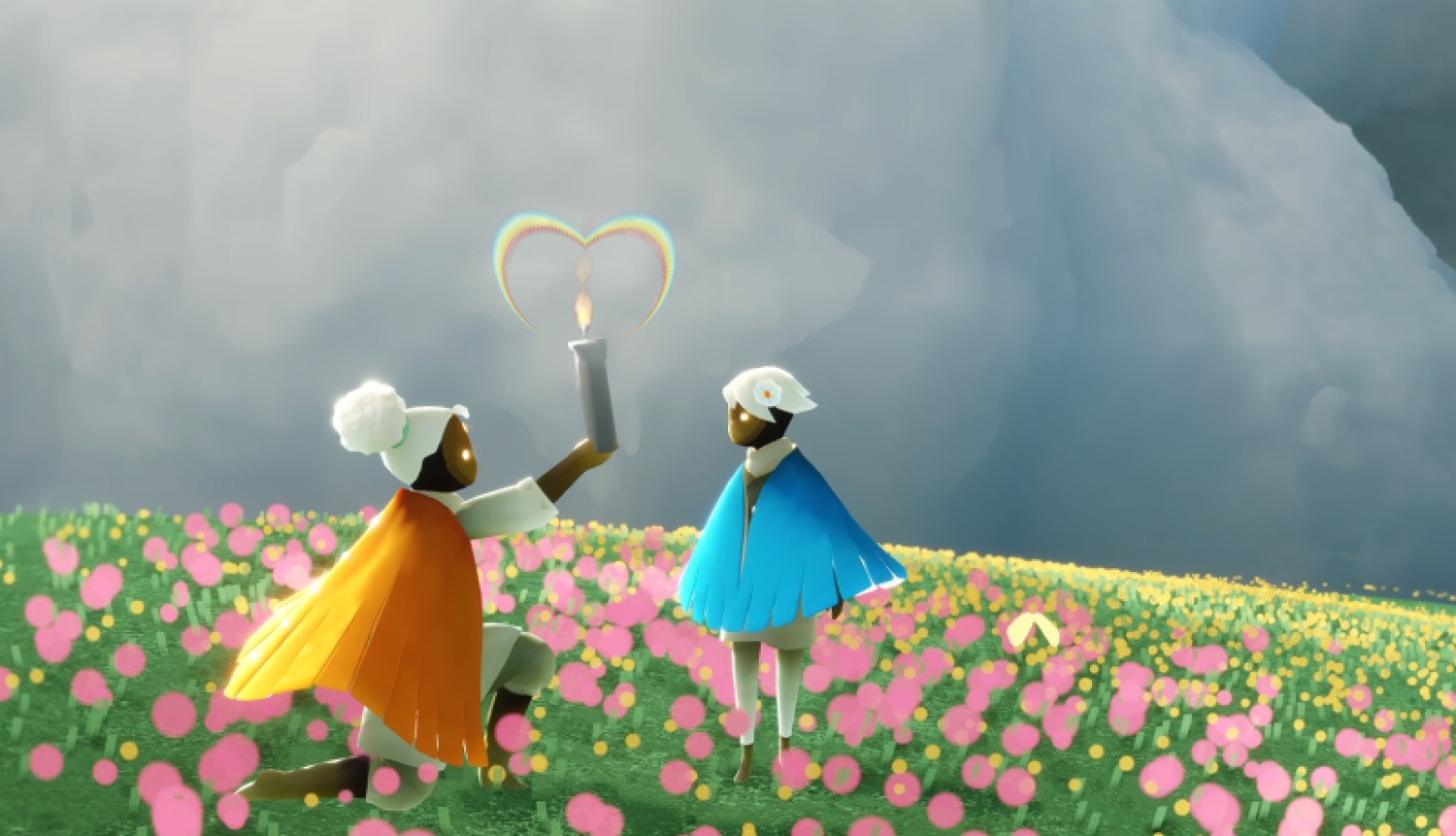
He noted that toxicity became a challenge. But because the community started out as a friendly one, it became a self-policing community when dealing with people who behaved poorly. That worked well.
“Even in a virtual world, if if you design a social connections, when your real friend can see you say something terrible, then you think twice about that. It’s very different where you can do it anonymously,” he said.
The game won a Guinness World Records award for getting the most people into a multiplayer gaming experience at one time. And those players got to fly around the stadium in a thrilling way.
“In the virtual world, you feel same emotion with your friend. It’s the same,” he said. “After I experienced that concert, I felt like this is kind of like the metaverse. And so that makes me become more ambitious. With these large events, as we hosted them, people actually feel a sense of connection.”
So Chen is thinking about things like a festival or a night market or a marathon. Something like Burning Man with hundreds of thousands of people in it at the same time.
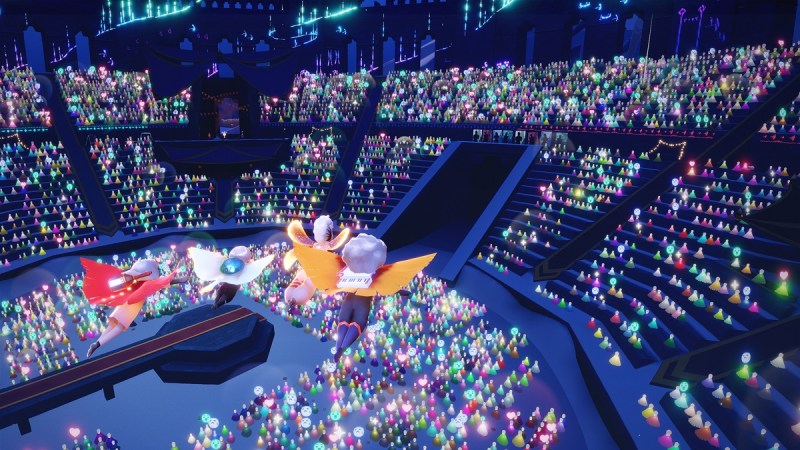
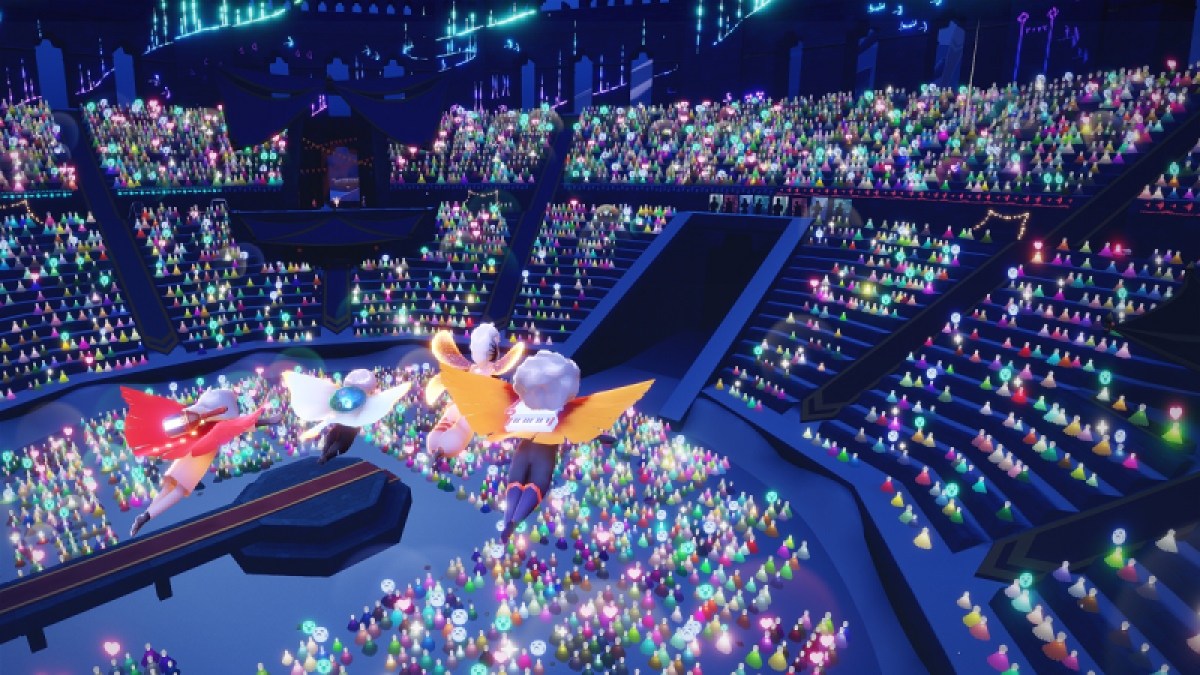
“Now I’m thinking of doing a convention in a virtual world,” he said, hinting at something like the events that CCP Games holds for Eve Online fans. It’s the kind of thing that people in wheelchairs could go to, or perhaps introverted people.
“I felt like there is actually a real function if the game is helping them to overcome the anxiety of talking to people in real life. And they feel more comfortable to talk to each other first in the virtual world and many of them and become friends in real life,” he said.
I told him that if he could get hundreds of thousands of people together and they all get along, then he should get the Nobel Peace Prize for that.
Thank you
Lastly, I’d like to thank our primary team at VentureBeat that organized this conference under very tough circumstances.
This group includes David Glass, Cathy Simpson, Ben Searcy, Nicole Patricio, Gina Joseph, Mike Rosinski, Todd Bokin, Marc Gartenberg, Sonia Rude, Alyssa Reck, Brian Thurman, Rachel Kaser, Jordan Fragen, Mike Minotti and the rest of the VentureBeat team. David Glass did a particularly great job in rolling with the changes and holding it all together. Thanks also to our volunteers, advisers and sponsors, as well as the team at Convene, which had its inaugural conference with GamesBeat Next. Thank you.
GamesBeat’s creed when covering the game industry is “where passion meets business.” What does this mean? We want to tell you how the news matters to you — not just as a decision-maker at a game studio, but also as a fan of games. Whether you read our articles, listen to our podcasts, or watch our videos, GamesBeat will help you learn about the industry and enjoy engaging with it. Discover our Briefings.












